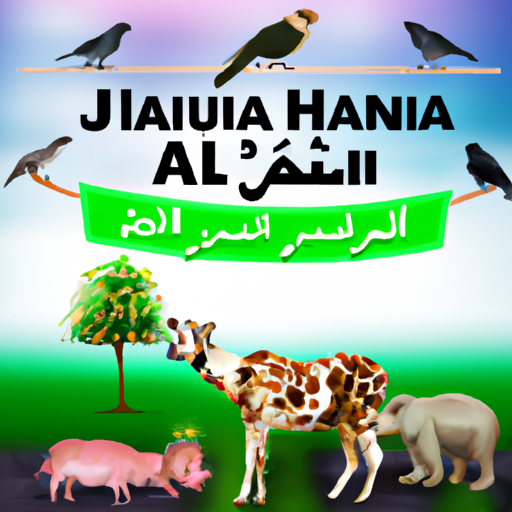 Introduction:
Introduction:
The concept of Jannah, or Paradise, holds a significant place in Islamic theology, representing the ultimate reward for those who have lived a life of righteousness and faith. While discussions surrounding human entry into Jannah are abundant, the question of whether animals will also partake in this eternal bliss remains a subject of curiosity and debate. In this article, we embark on a thorough exploration of Islamic teachings and narratives to shed light on the possibility of animals attaining Jannah.
Animals in the Qur’an:
The Qur’an, the holy book of Islam, acknowledges the presence of animals as part of God’s creation, emphasizing their purposeful existence and the role they play in the natural world. Numerous verses describe the intricate balance of nature and emphasize the responsibility of humans in caring for animals. This recognition of animals’ worth in the Qur’an sets the foundation for further discussions on their inclusion in Jannah.
The Mercy of Allah:
One of the fundamental principles of Islamic belief is the infinite mercy of Allah towards all of His creatures. The Prophet Muhammad (peace be upon him) emphasized compassion towards animals and taught his followers to treat them with kindness and respect. This compassion and mercy extend beyond the earthly realm, leading many scholars to believe that Allah’s benevolence would extend to animals in the afterlife as well.
Hadiths on Animal Entry into Jannah:
While the Qur’an does not explicitly mention the fate of animals in Jannah, several hadiths (sayings and actions of the Prophet Muhammad) provide insights into this matter. One hadith narrated by Abdullah bin Umar states that animals with horns will have them adorned with gold and silver in Jannah, indicating a special status for certain animals. Furthermore, another narration describes that animals will be resurrected in their original form to account for their actions, suggesting the possibility of their inclusion in Jannah.
The Testimony of the Prophet’s Companions:
The companions of the Prophet Muhammad, who were intimately familiar with his teachings and practices, provide additional evidence regarding the inclusion of animals in Jannah. Abdullah bin Mas’ud, a prominent companion, stated that animals will be present in Jannah, serving as a source of joy and companionship for the inhabitants. Similarly, Ibn Abbas, another companion, affirmed that animals will indeed enter Jannah, highlighting the continuation of the divine balance and harmony experienced in this life.
Interpretation and Scholarly Opinions:
Islamic scholars have offered diverse interpretations regarding animal entry into Jannah. Some scholars argue that animals, being devoid of intellect and free will, are not accountable for their actions and, therefore, may not experience Jannah. However, a prevailing viewpoint asserts that Allah’s mercy encompasses all forms of creation, and animals, having fulfilled their purpose on Earth, may attain Jannah as a reward for their existence and service to humans.
The Symbolic and Literal Perspectives:
In contemplating animal entry into Jannah, it is important to consider both the symbolic and literal aspects. Symbolically, animals in Jannah can represent the harmony and peace that will prevail in the afterlife. On a literal level, some scholars opine that animals will be granted consciousness and the ability to experience Jannah’s pleasures. This viewpoint aligns with the overarching Islamic belief in the limitless power of Allah to grant His creation the ability to perceive and enjoy His blessings.
Conclusion:
While the Qur’an and hadiths do not provide explicit details on the fate of animals in Jannah, Islamic teachings emphasize the mercy and compassion of Allah towards all creatures. The testimonies of the Prophet’s companions and the interpretations of scholars indicate the possibility of animal entry into Jannah. Ultimately, only Allah knows the true nature of Paradise, and the question of animal inclusion remains a matter of faith and hope. Nonetheless, the Islamic tradition encourages believers to treat animals with kindness and respect, recognizing their intrinsic worth and the potential for divine reward that awaits all creatures in the afterlife.
